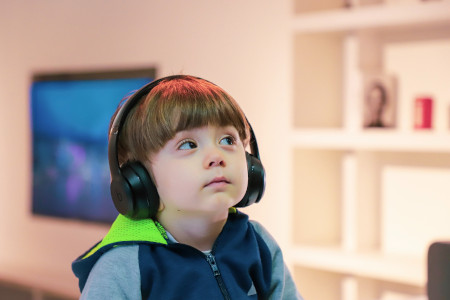Hearing Loss in Seniors – Can it be Reversed?
Can hearing loss in seniors be reversed? Hearing problems affect many seniors. The statistics are that around one in three seniors aged 65-74 suffer from hearing loss. That number rises. Nearly half of those aged 75 and older have trouble hearing.
By the way, due to misuse of devices and headsets, hearing damage happens to youngsters too.
Causes of Hearing Loss in Seniors
There are different causes of hearing loss. The main reasons are:
- Listening to loud noises
- Aging of the delicate ear parts
- Disease related to hearing
- Genetic factors
Hearing Aids and More
So, can we reverse the damage done to hearing?
The answer is, that depends on which type of hearing damage occurred.
There are three main types of hearing loss:
- Sensorineural
- Conductive
- Mixed
Sensorineural damage cannot be reversed, according to conventional medicine. If the auditory nerve or special hair-cells in the inner ear are damaged, there is no cure, yet.
Conducive hearing issues present more hope. The problem is caused by damage or an obstruction to the middle or outer ear. If there is a blockage, it can be removed (such as ear wax), and hearing aids in their many shapes and sizes are a workable option. Sometimes, surgery is a solution.
If the hearing loss is caused by Mixed causes, there is both Sensorineural and Conducive damage. In that case, some of the damage can be treated.
List of Possible Fixes
- Hearing aids
- Cochlear Implants (kok-lee-ar)
- Removal of wax
- Curing ear infection
- Removal of growths
- Removal of foreign objects from the ear canal
- Surgical reconstruction of an ear canal (canalo-plasty)
Which Doctors ‘Ear about Ear Problems?
The area of medicine that deals with problems in the ear is mainly the ENT or Otolaryngologist. A doctor with further training in areas of the ear is called an Otologist.
The ENT deals with issues of the ear, nose and throat.
The Otologist is trained in managing dizziness, hearing loss or tumors, with medical or surgical solutions.
These, are different to an Audiologist, who specializes in hearing, balance and tinnitus disorders.
A person might be referred to a hearing aid specialist. The specialist must be licensed in order to evaluate a person’s needs and recommend the best type of hearing aid for them.
Improving Hearing at Any Age
So here are some surprising ways for a senior to improve their hearing, as suggested by Audicus, a hearing aid company.
Ready?
- Engage your brain. Improve how the brain processes sound, by keeping the brain in good condition. This can be done through solving puzzles and other cognitive activities.
- Meditate and do yoga.
- Physical exercise – this keeps your body and mind supple and is related to better hearing.
- Focus your listening to specific sounds. Focused listening can actually be calming (it is connected to Mindfulness). Searching out sounds around you, can sharpen your listening skills. In recorded music, you could follow the sound of a certain instrument.
Hear a Final Word
Hearing loss in seniors can be accompanied by self-education. Read up about possible things a person can do to help themselves. Always touch base with a doctor before trying home cures or if there are changes in your hearing.
Hearing loss in seniors is a common issue.
Hearing loss in seniors does not always have to be part of aging. The older and wiser can tell their loved ones how worthwhile it is to protect their hearing….

Hearing loss in seniors starts early…a young boy with headphones should be cautioned.
Photo by Alireza Attari on Unsplash
